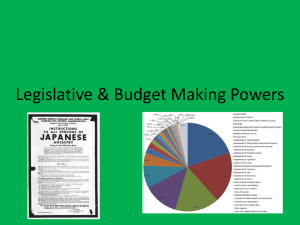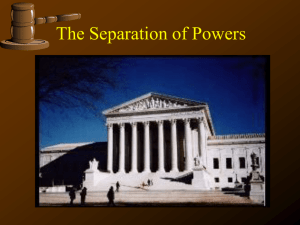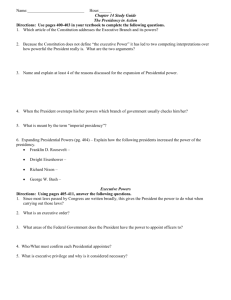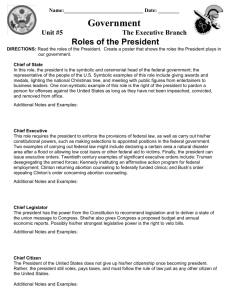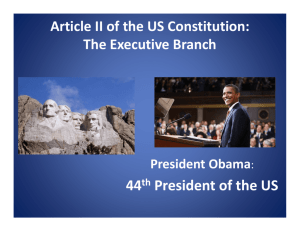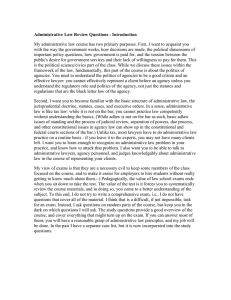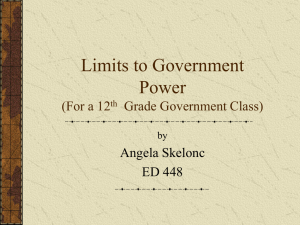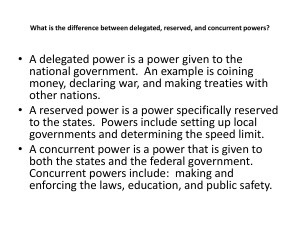Con Law I - unknown - 1999 Spr
advertisement
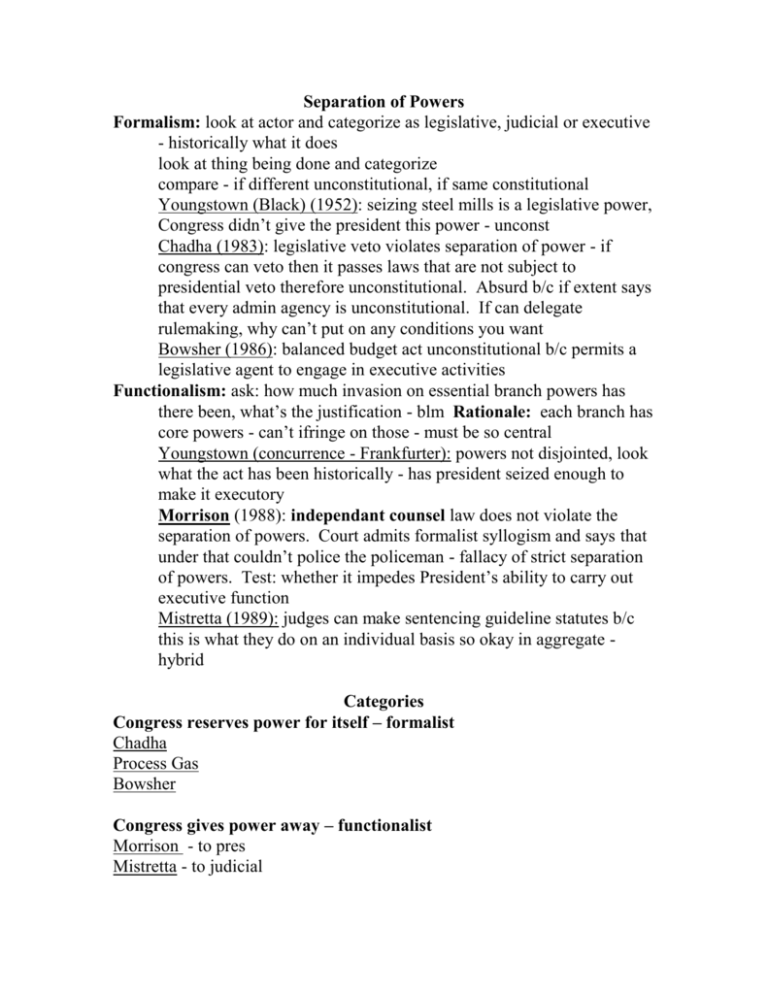
Separation of Powers Formalism: look at actor and categorize as legislative, judicial or executive - historically what it does look at thing being done and categorize compare - if different unconstitutional, if same constitutional Youngstown (Black) (1952): seizing steel mills is a legislative power, Congress didn’t give the president this power - unconst Chadha (1983): legislative veto violates separation of power - if congress can veto then it passes laws that are not subject to presidential veto therefore unconstitutional. Absurd b/c if extent says that every admin agency is unconstitutional. If can delegate rulemaking, why can’t put on any conditions you want Bowsher (1986): balanced budget act unconstitutional b/c permits a legislative agent to engage in executive activities Functionalism: ask: how much invasion on essential branch powers has there been, what’s the justification - blm Rationale: each branch has core powers - can’t ifringe on those - must be so central Youngstown (concurrence - Frankfurter): powers not disjointed, look what the act has been historically - has president seized enough to make it executory Morrison (1988): independant counsel law does not violate the separation of powers. Court admits formalist syllogism and says that under that couldn’t police the policeman - fallacy of strict separation of powers. Test: whether it impedes President’s ability to carry out executive function Mistretta (1989): judges can make sentencing guideline statutes b/c this is what they do on an individual basis so okay in aggregate hybrid Categories Congress reserves power for itself – formalist Chadha Process Gas Bowsher Congress gives power away – functionalist Morrison - to pres Mistretta - to judicial Exception: Line Item Veto (Clinton): constitution is silent on subject, uses formalistic statements on grounds that “consitutional law is constitutional practice (when constitution is silent). Shapiro argues: fundemental change in rolls/power requires amendment. Dissent: Scalia - too late in the day to make a separation of powers argument, Kennedy (bad): b/c congress delegated, president is executing law by repealing Delegation of Rulemaking Power - Administrative law - functionlist Rule: court gives voice to non-delegation doctrine but has not invalidated legislation under this doctrine since 1935. Recent cases say that delegation will be upheld whenever Congress furnishes an intelligible principle Independent Regulatory Commissions: created to keep regulations out of politicians hands and in courts hands - quasi-legislative Administrative Laws: administrative agencies do the law making but law made must be lawful - cannot conflict w/ the constitution or mandate

